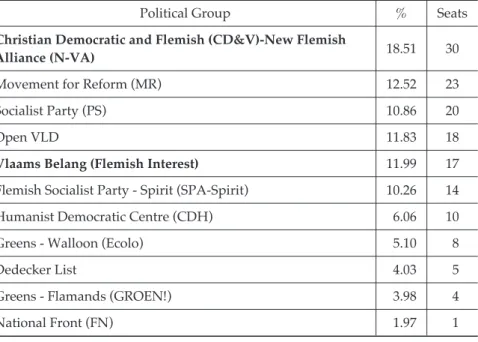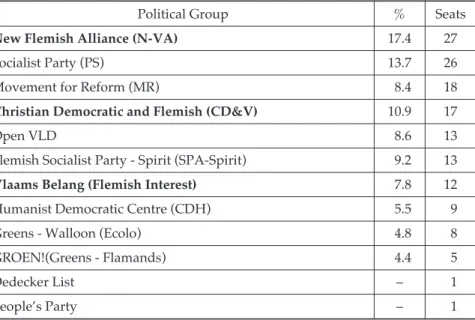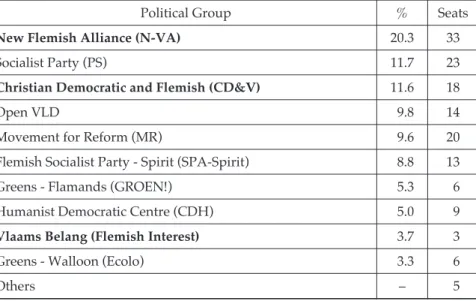The case of Germany clearly shows how difficult it is to achieve a successful social integration in the process of unification. Although the cultural influx into North Korea may help North Koreans adapt to the new society, the cultural difference in two Koreas will certainly hinder realizing successful integration into the unified Korea. South Korea believes in the Hantribe as their original genealogy while North Korea rejects it.
North Korea, however, will not give up its nation's socialist identity in a unified Korea. If the collapse of the North Korean system results in the unification of the two Koreas, North Korean socialism will tend towards a form of extreme nationalism. So North Korea cannot ask for serious help from South Korea in the event of unification.
South Korea generates more than 95 percent of the total GDP produced on the Korean Peninsula, while North Korea accounts for only 5 percent. Kim Philo, “Perceptions of North Koreans in the South and Reality in North Korea,” p. Research on the concept of unification in North Korea with a focus on North Korean refugees (in Korean).
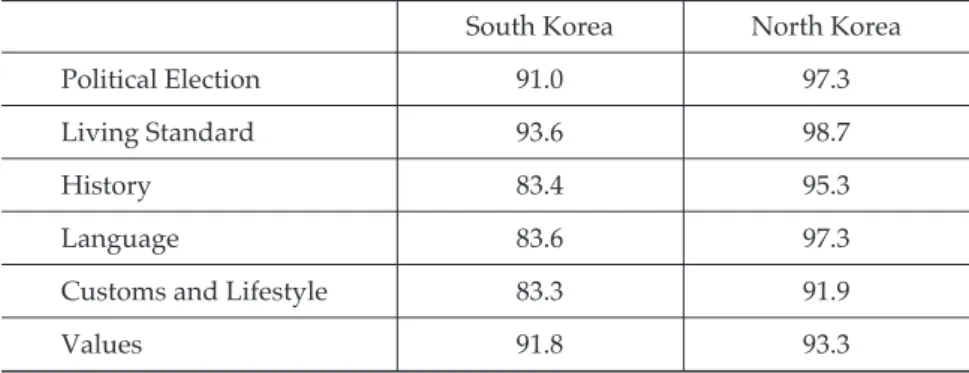
Coming Together!
Could Belgian Integration be a way for the Unified Korea?
National consolidation and political centralization were possible by reserving the basic wishes of the Dutch-speaking people. Department of the Brussels-Halle-Vilvoorde (BHV) district (The division in the electoral district of the Flemish inhabitants of the French region). The federal mechanism based on autonomous decision-making in local communities and regions is to preserve national integration through power decentralization or power sharing.
This phenomenon actually brought about the "Flemish Movement". The movement called together all social forces focused on the emancipation of the Flemish in Belgium. Flemish parties usually support the Flemish movement, although there are different degrees. It is an instrument for promoting Flanders' national and cultural identity.
Imaginable ideas to guarantee the independence and autonomy of the Communities and the Regions have ironically introduced the divide between Dutch-French culture and history.
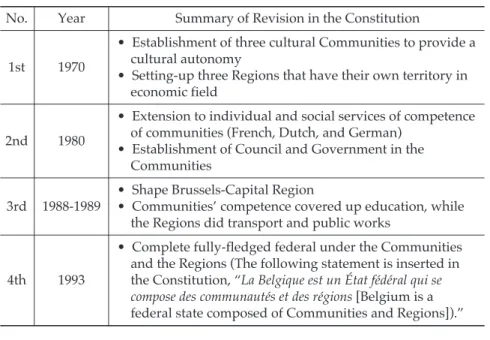
Being Better at Doing Good
Organizational Engagement and International Management Practices in the DPR (North) Korea
As a partial answer to that question, I study the record of engagement of international organizations working in the DPRK. To make matters worse, there is the overhang of the geopolitical crisis, which periodically negatively impacts organizations' operations in the DPRK. Rüdiger Frank and Sabine Burghart among others have done interesting work on socialist transformation in the DPRK.
Increasing the effectiveness of international organizations working in the DPRK may sound like wishful thinking. This is because the system in the DPRK is based on minimizing interaction, reciprocity and dependency between locals and foreigners. Gain insight into interactions and dynamics from the available literature on international management practices in the DPRK and in the post-socialist transition context.
The United Nations agencies, embassies, and international NGOs (INGOs) constitute a relatively large international organization presence in the DPRK. It is notable that these well-known INGOs cannot operate in the DPRK under their own names. In 1991, the Rason Special Economic Zone was established in the far northeast of the country.
The DPRK government has coordinating bodies for the international agencies working in the country; these agencies are generally part of some of the ministries, e.g. Ministry of Foreign Affairs. Nevertheless, there is increasing evidence of interdependent interaction between DPRK entities and international organizations working in the DPRK. There is not much existing literature in the public domain on actual organizational-level management and human resource practices prevalent in the DPRK.
This is in large part due to researchers' lack of access to organizations in the DPRK. And my own empirical observations, based on three years of living and working (as an international development consultant) in the DPRK. Specifically, among international organizations working in the DPRK, the example of one agency stands out.
There were separate telecommunications systems between citizens and international citizens in the DPRK; national colleagues cannot call international colleagues and vice versa.
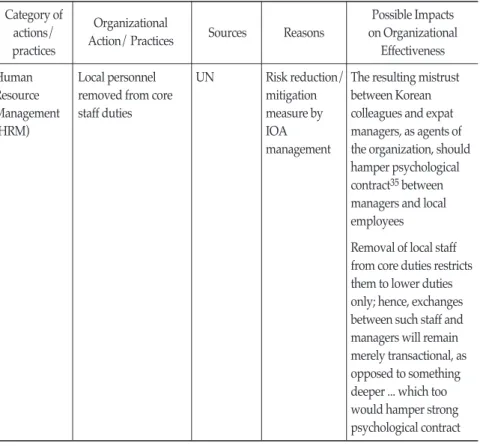
Securitization of Democracy
A Case Study of South Korea*
In this context, this study examines how democracy has been securitized in South Korea's political processes. This expanded concept of security assumes central status in the discussion of security in the post-Cold War era. Min Byoung-Won, “The Expansion of the Security Concept in the Post-Cold War Era: The Copenhagen School, Securitization and International Relations Theory,” (in Korean) World Politics5, no.
He finds that state-centric discourse has dominated security-related studies in this area even in the post-Cold War era. The examination of previous studies reveals that the study of securitization in South Korea is still in the original state. Few studies have been involved in the empirical investigation of securitization issues in South Korea.
The Student Uprising of 19 April was the first movement towards democratization of the population in the political history of the South. The interplay of these forces eventually culminated in the politically repressive regime in South Korea. This sudden collapse of the Fourth Republic brought another chance for democratization in South Korea.
From the examination of the political history before democratization, it is clear that democracy was consistently secured by the authoritarian leaders in South Korea. The international security environment of the period also strengthened South Korea's perception of external threat. Therefore, the contribution of the study in the theoretical dimension will be limited to that extent.
People, States and Fear: An Agenda for International Security Studies in the Post-Cold War Era. Expanding the Concept in the Post-Cold War Era: The Copenhagen School, Securitization, and International Relations Theory,”. in Korean).
Informal Political System in North Korea
Systematic Corruption of “Power-Wealth Symbiosis”
However, analysis of such topics in relation to the continuation of the Suryong dictatorship is only in its embryonic stages.3. It was institutionalized as the market economy that developed in the reform and opening process of the 1980s merged with the former controlled economy. They are also actors who have directly experienced the history of change in North Korea over the past 30 years from the planned economy of the 1980s to the market economy of the 2000s at economic sites.
The price changes according to the details of the request and the price varies depending on which organization is in charge. Although there is a difference in the seriousness of the case and the proceedings, a symbiosis system generally works among officials. This chapter examines North Korea's systematic corruption of "power-wealth symbiosis" from the perspective of the client.
The relationship with the continuity of the Suryong dictatorship is seen in terms of both informal and formal systems. The findings on systematic corruption in North Korea, which functioned as an informal political system during the post-2000 Suryong dictatorship, are analyzed considering the past two decades of North Korea's marketization and the growth of the market economy in China. 1980s. It is the survival mechanism of the dictatorship and contributes to the political legitimacy of the socialist state.
Michael Mann, "The Autonomous Power of the State: Its Origins, Mechanisms and Results," European Journal of Sociology25, no. North Korean system in the state sector, managers of foreign exchange serve companies, donjus and merchants in the market sector, and citizens in the social sector rose . This is because their wealth was created in the structuralization process of the market economy, which was created in a command economy.
In short, in the short term, North Korea's informal political system, the systematic corruption of "power-wealth symbiosis," contributes to the continuity of the suryong dictatorship. It is also possible that protagonists of the informal political system that led clientelism could become a new capitalist class in a situation where systematic transition is taking place in North Korea. Splitting by class, generation and region in the changing times of North Korean regime: situation and structure based on model of the actor. (in Korean) Korean Political Science Review46, no.
Bureaucratic Patronage and Private Enterprise: Changing Power Networks in Urban China.” In The Waning of the Communist State: Economic Origins of Political Change in China and Hungary.
BUSINESS REPLY MAIL
Korea Institute for National Unification (KINU) 217, Banpo-daero, Seocho-gu,
INTERNATIONAL JOURNAL OF KOREAN UNIFICATION STUDIES
SUBSCRIPTION ORDER FORM
INTERNATIONAL JOURNAL OF KOREAN UNIFICATION STUDIES SUBSCRIPTION ORDER FORM
The International Journal of Korean Unification Studies (ISSN NO) was registered with the National Research Foundation of Korea in 2009 and is published three times (April 30/August 31/. All articles published in the journal are subject to review by relevant experts in the field before they are accepted for publication KINU holds the copyright for all articles published in the International Journal of Korean Unification Studies and reserves the right to edit for space.
The views expressed in the journal are the views of individual contributions and do not necessarily represent the views of KINU. Manuscripts should be double-spaced and footnoted with a complete list of the bibliography cited in the footnotes. The required length of the articles must be 12 word size, using Microsoft Word only.
Submission of a paper will be held to imply that it contains original unpublished work and is not submitted elsewhere for publication;. The first page of the manuscript should contain the following information: the paper title; the name(s) of the author(s). Kim, "Pyongyang, the Third World, and Global Politics," in The Two Koreans in World Politics, Tae-Hwan Kwak et.
Please refer to The Chicago Manual of Style, 16th edition for any other type of publications. Illustrations such as tables and figures should be inserted in the text and numbered consecutively. References: A complete list of bibliography cited throughout the footnotes should be provided at the end of the manuscript.
International Journal of Korean Unification Studies Korea Institute for National Unification 217, Banpo-daero, Seocho-gu, Seoul 137-756, Republiek van Korea.
